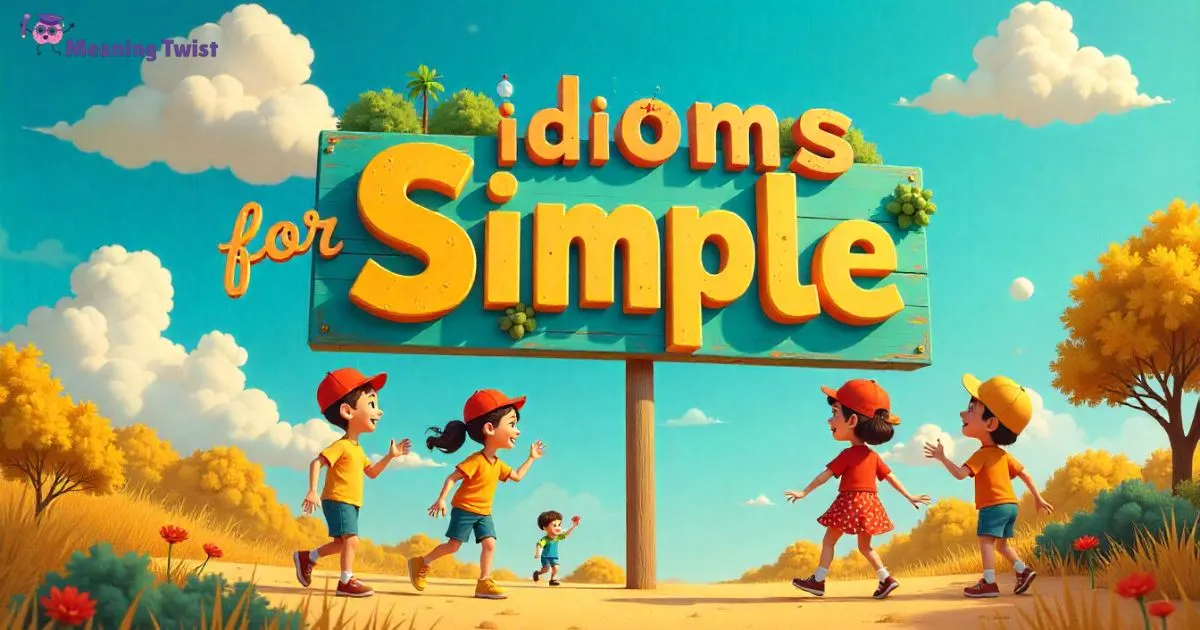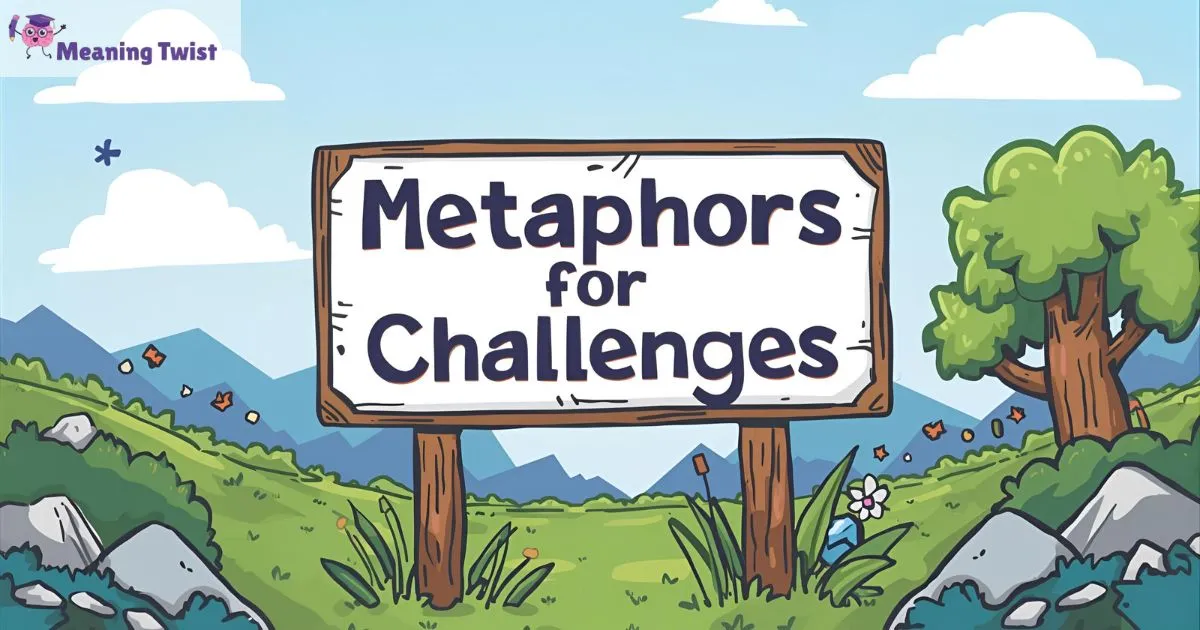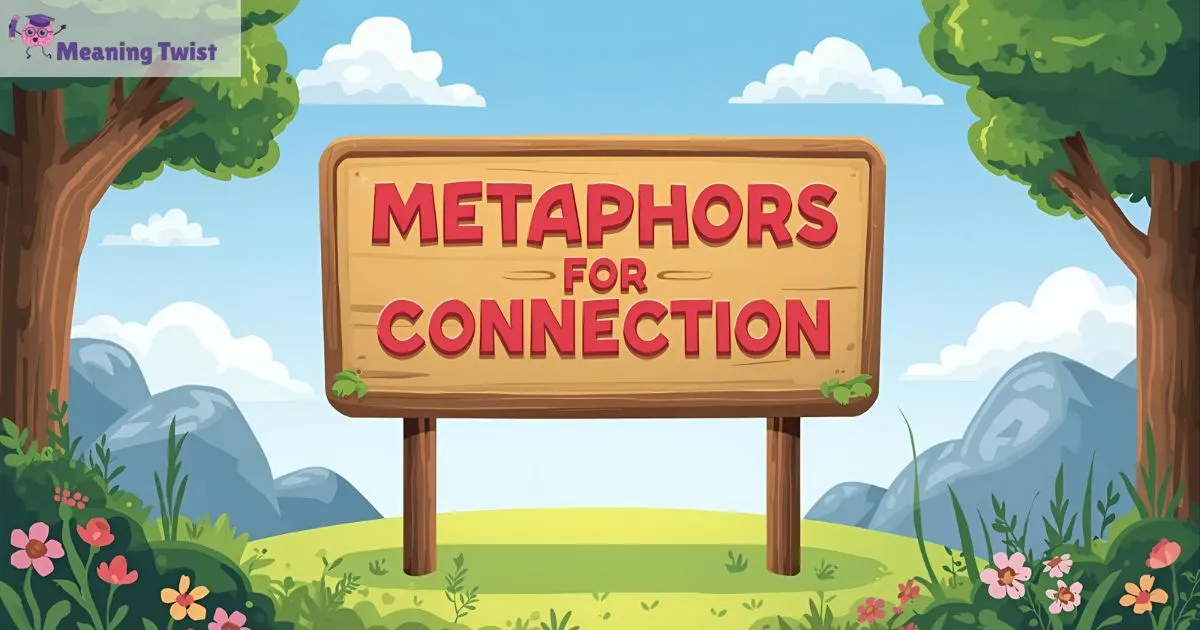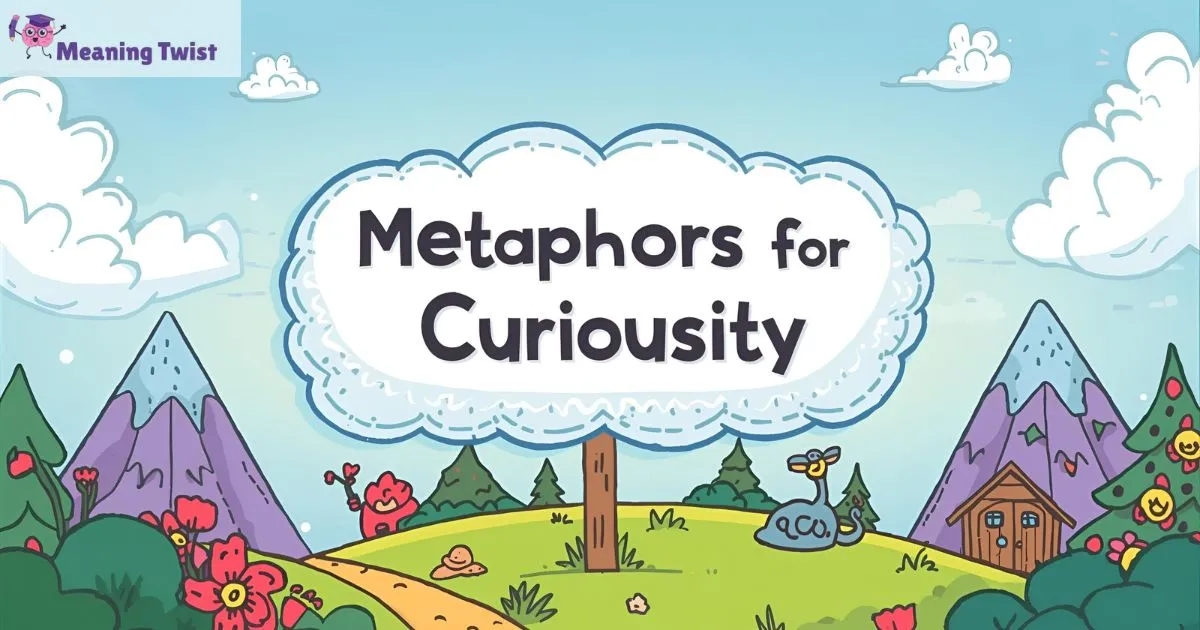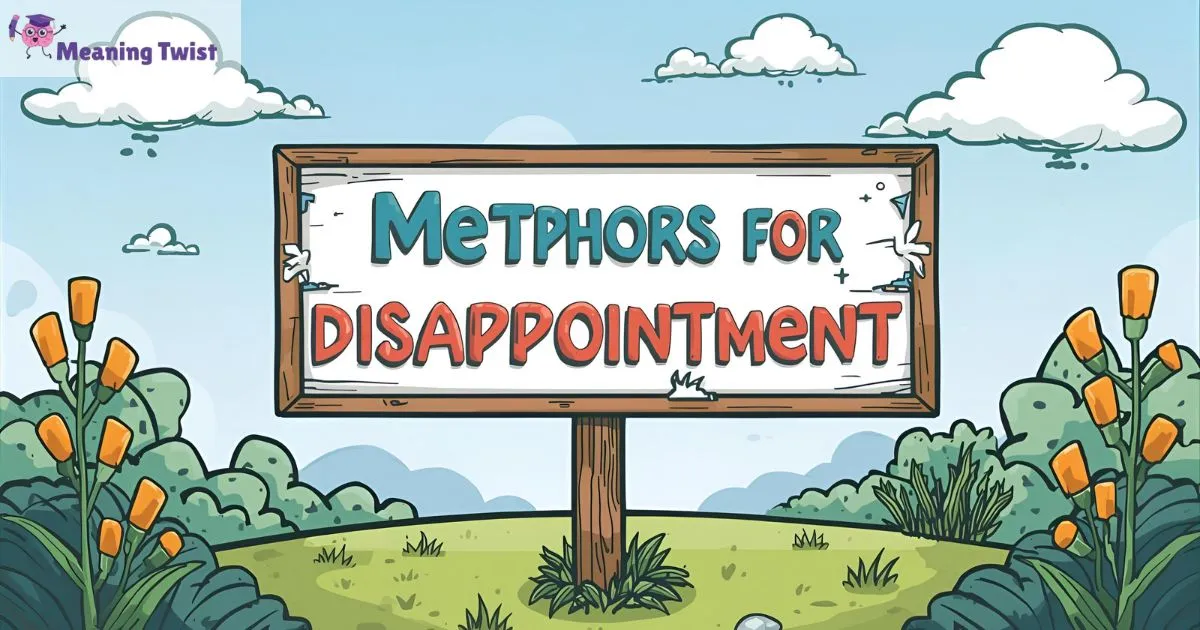
Giving advice isn’t always easy. Sometimes your words sound too serious, and other times they fail to connect emotionally. That’s where idioms step in. They make your message sound lively, creative, and memorable. Instead of saying something flat like “Be careful, saying “Look before you leap” instantly makes your message warmer and wiser. Whether you’re guiding a friend, student, or coworker, idioms add a spark of personality that keeps your advice meaningful.
Here’s a fun little challenge: pick three idioms from this post and try them this week. Drop one in a chat, another in an email, or even on social media. Notice how idioms make your words stand out — they add humor, wisdom, and a natural flow that makes people listen and remember.
Idioms for advice turn simple words into powerful expressions. They carry images, emotion, and timeless lessons. Instead of saying “Don’t depend on one thing, try “Don’t put all your eggs in one basket.” It sounds friendlier and more human. That’s why idioms are more than old sayings — they’re bridges between clarity and creativity in everyday speech.
1. Don’t bite off more than you can chew
Meaning: Don’t take on more than you can manage.
Scenario: When someone is overloaded with work or commitments.
Tip: Use it when reminding someone to set realistic limits.
Real-Life Example:
Ali was thrilled about his new job and wanted to impress everyone. He accepted multiple projects at once, thinking he could handle them easily. Within a few weeks, he was burned out and missing deadlines. His manager reminded him not to bite off more than he could chew. That advice helped him learn to prioritize tasks, focus better, and deliver quality instead of rushing quantity.
2. Look before you leap
Meaning: Think carefully before acting or making a major decision.
Scenario: Before switching jobs, starting a business, or making big financial moves.
Tip: Ideal for moments when people need to slow down and plan first.
Real-Life Example:
Sara dreamed of opening her own bakery but wasn’t sure about the expenses or competition. Instead of jumping in too quickly, she researched suppliers, learned baking laws, and calculated costs. When she finally opened, her business ran smoothly from day one. She learned firsthand that it pays to look before you leap.
3. Every cloud has a silver lining
Meaning: There’s always something positive hidden within a bad situation.
Scenario: When encouraging someone after failure, loss, or rejection.
Tip: Use it to bring hope, comfort, and a positive twist.
Real-Life Example:
When Ahmed failed his first driving test, he felt embarrassed and disappointed. But that extra time gave him the chance to practice more and become a safer driver. A month later, he passed with confidence. The failure turned out to be a blessing — proving that every cloud has a silver lining.
4. Rome wasn’t built in a day
Meaning: Great things take time, effort, and patience.
Scenario: When motivating someone who feels discouraged about slow progress.
Tip: Use it when reminding people that steady effort beats instant results.
Real-Life Example:
Hassan started learning web development and wanted quick success. After a few months, he got frustrated and almost quit. His teacher reminded him that Rome wasn’t built in a day. That advice stuck — he practiced daily, and within a year, he created his first website portfolio. Patience became his biggest skill.
5. A stitch in time saves nine
Meaning: Fix small problems early before they grow bigger.
Scenario: When someone ignores an issue that could worsen later.
Tip: Great for advice about prevention or quick action.
Real-Life Example:
When Sana noticed a small water leak in her kitchen, her brother said to leave it. But she got it repaired right away. Two weeks later, a neighbor’s pipe burst and flooded their apartment. Sana’s quick action saved her from the same fate — proving that a stitch in time saves nine.
6. Better safe than sorry
Meaning: It’s wiser to be cautious than regret later.
Scenario: When advising someone to prepare or avoid risky behavior.
Tip: Perfect for safety, travel, or financial advice.
Real-Life Example:
Before a hiking trip, Ayesha’s friends made fun of her for packing extra supplies. But when a storm hit unexpectedly, those supplies helped everyone stay safe. Her preparation showed the real meaning of better safe than sorry — being ready for the worst can save the day.
7. Don’t put all your eggs in one basket
Meaning: Don’t depend entirely on one plan or option.
Scenario: When someone invests all their time or effort into one thing.
Tip: Great for advice in career, finance, or personal planning.
Real-Life Example:
Nadia invested all her savings into a single startup idea that failed within months. Instead of giving up, she diversified her projects — small freelancing gigs, a part-time job, and a new online shop. Her income became stable again, teaching her never to put all her eggs in one basket.
8. Actions speak louder than words
Meaning: What you do matters more than what you say.
Scenario: When someone promises change but doesn’t act on it.
Tip: Perfect for encouraging integrity and commitment.
Real-Life Example:
Bilal kept telling everyone he’d start studying seriously, but he never followed through. One day, his friend reminded him that actions speak louder than words. That hit home — Bilal started studying daily, and his grades finally reflected his effort.
9. Strike while the iron is hot
Meaning: Take advantage of an opportunity before it disappears.
Scenario: When someone hesitates to act on a good chance.
Tip: Use it for career, business, or education advice.
Real-Life Example:
When a photography contest opened in her city, Amna doubted herself. A mentor told her to strike while the iron is hot. She applied, won second place, and got her first client. That one bold move opened the door to a whole new career.
10. Two heads are better than one
Meaning: Working together leads to better results than working alone.
Scenario: When teamwork or collaboration is needed.
Tip: Ideal for promoting group work and shared learning.
Real-Life Example:
During a tough coding challenge, Arham tried solving it alone for hours. When his classmate joined in, they cracked the solution in minutes. That experience proved that two heads are better than one — collaboration often makes hard tasks easier.
11. Strike while the iron is hot
Meaning: Take advantage of a good opportunity before it disappears.
Scenario: When someone hesitates to act even though the timing is perfect.
Tip: Use it when encouraging others to move quickly on a chance.
Real-Life Example:
When Usman’s artwork got noticed by a famous local brand, he wasn’t sure if he should collaborate. His best friend reminded him to strike while the iron is hot. He accepted, and that one project opened doors to many new commissions. It proved how important it is to act when luck is on your side.
12. The early bird catches the worm
Meaning: Those who start early have a better chance of success.
Scenario: When motivating someone to act before others.
Tip: Use it to inspire discipline or time management.
Real-Life Example:
Mina began her exam preparation two months earlier than her classmates. By the time finals arrived, she was relaxed and confident. Her teacher praised her and said the early bird catches the worm — her consistency brought the reward.
13. Actions speak louder than words
Meaning: What you do matters more than what you say.
Scenario: When someone promises a lot but doesn’t deliver.
Tip: Perfect for motivating people to act, not just plan.
Real-Life Example:
Bilal kept talking about helping his community but never took initiative. His friend volunteered at a charity instead of waiting. That silent act showed Bilal that actions speak louder than words — soon he joined the team and became more proactive.
14. Don’t put all your eggs in one basket
Meaning: Don’t risk everything on a single plan or idea.
Scenario: When discussing investments, career plans, or studies.
Tip: Use this when suggesting backup options.
Real-Life Example:
When Zoya decided to apply to just one university, her father advised her not to put all her eggs in one basket. She applied to several, and when her first choice rejected her, she still had great options. That advice saved her academic year.
15. A stitch in time saves nine
Meaning: Fix a small problem early to prevent bigger ones later.
Scenario: When reminding someone to take early action.
Tip: Great for giving practical, time-sensitive advice.
Real-Life Example:
The office printer started showing small errors, but no one fixed it. After a week, it broke completely, delaying an entire project. Their supervisor said, a stitch in time saves nine — had they fixed it earlier, they’d have avoided chaos.
16. You can’t have your cake and eat it too
Meaning: You can’t enjoy two conflicting benefits at once.
Scenario: When someone wants the best of both worlds.
Tip: Use it to explain balance and trade-offs in life.
Real-Life Example:
Haris wanted to travel full-time but also wanted a steady office income. His cousin reminded him that you can’t have your cake and eat it too. Haris learned to find balance by freelancing remotely, achieving both freedom and financial security.
17. Too many cooks spoil the broth
Meaning: Too many people involved in one task can create confusion.
Scenario: When teamwork turns messy due to lack of coordination.
Tip: Perfect for reminding about leadership and structure.
Real-Life Example:
During a group project, everyone had different ideas but no leader. The presentation turned chaotic. The teacher smiled and said, too many cooks spoil the broth. The next time, they divided roles clearly — and the result was perfect.
18. Don’t judge a book by its cover
Meaning: Don’t form opinions based on appearance.
Scenario: When advising someone to look deeper before deciding.
Tip: Use it to promote kindness, patience, or open-mindedness.
Real-Life Example:
When Zara met her quiet new neighbor, she assumed he was unfriendly. Later, she discovered he was a talented musician who taught free lessons to kids. That experience taught her not to judge a book by its cover — appearances can be deceiving.
19. When in Rome, do as the Romans do
Meaning: Adapt to the customs or rules of the place you’re in.
Scenario: When visiting new places or joining new communities.
Tip: Great for teaching cultural sensitivity or adjustment.
Real-Life Example:
Ahmed moved to Japan for studies. At first, he found the strict punctuality unusual, but he soon adapted. He learned that when in Rome, do as the Romans do — blending in helped him earn respect and make great friends.
20. Practice makes perfect
Meaning: Consistent effort leads to improvement.
Scenario: When motivating someone to keep practicing.
Tip: Use it to build patience and long-term growth mindset.
Real-Life Example:
Areeba struggled with coding at first, but she practiced daily. Within months, she built her first website. Her instructor reminded her that practice makes perfect — persistence turned her frustration into success.
21. Better late than never
Meaning: It’s better to do something late than not at all.
Scenario: When someone apologizes or completes something late.
Tip: Use it to appreciate delayed effort positively.
Real-Life Example:
After years of ignoring fitness, Sameer finally joined a gym at 35. His trainer smiled and said, better late than never. That small encouragement made him stick to his new lifestyle and feel proud of his progress.
22. Rome wasn’t built in a day
Meaning: Great achievements take time and patience.
Scenario: When motivating someone who’s losing patience.
Tip: Ideal for long-term goals or creative projects.
Real-Life Example:
Fatima wanted her YouTube channel to succeed overnight. When growth was slow, her brother reminded her that Rome wasn’t built in a day. She focused on creating value — six months later, her audience doubled.
23. Honesty is the best policy
Meaning: Being truthful always brings better results.
Scenario: When advising about integrity and trust.
Tip: Great for moral or ethical lessons.
Real-Life Example:
When Umar accidentally broke his friend’s headphones, he was tempted to hide it. Instead, he admitted his mistake. His friend appreciated the honesty and forgave him. That moment proved honesty is the best policy — truth builds stronger relationships.
24. Don’t cry over spilled milk
Meaning: Don’t waste time worrying about what’s already done.
Scenario: When someone regrets a mistake that can’t be undone.
Tip: Use it to encourage moving forward positively.
Real-Life Example:
After missing her train, Nadia felt upset. Her dad told her not to cry over spilled milk and enjoy a coffee instead. That small change of mindset helped her calm down and wait for the next train with a smile.
25. Two heads are better than one
Meaning: Teamwork often leads to better results.
Scenario: When encouraging collaboration or shared ideas.
Tip: Use it in group or office situations.
Real-Life Example:
Hamza was stuck on a marketing idea until his colleague joined in brainstorming. Together they created a winning campaign. Their manager said, two heads are better than one — collaboration sparked success.
26. A bird in the hand is worth two in the bush
Meaning: It’s wiser to keep what you have than risk it for more.
Scenario: When someone is being greedy or overly ambitious.
Tip: Use it to teach practicality.
Real-Life Example:
Saad thought of quitting his stable job for a risky start-up. His uncle reminded him that a bird in the hand is worth two in the bush. After thinking, Saad realized patience would bring better opportunities later — without risking everything now.
27. You reap what you sow
Meaning: Your actions determine your outcomes.
Scenario: When teaching responsibility or accountability.
Tip: Perfect for moral lessons or parenting.
Real-Life Example:
A student who ignored studies all semester failed his finals. His teacher said, you reap what you sow — effort always reflects in results. That failure turned into motivation for him to work harder next year.
28. Let bygones be bygones
Meaning: Forget past disagreements and move forward.
Scenario: When helping resolve conflicts.
Tip: Use it for peace-making advice.
Real-Life Example:
After months of silence, two old friends finally met. One of them smiled and said, let bygones be bygones. They laughed, shared stories, and realized how forgiveness can heal even the deepest rifts.
29. The grass is always greener on the other side
Meaning: People often think others have it better.
Scenario: When someone feels jealous or unsatisfied.
Tip: Use it to promote gratitude and contentment.
Real-Life Example:
Hina envied her cousin’s city life, but after visiting, she realized it came with stress and loneliness. That day, she understood the grass isn’t always greener on the other side — contentment starts where you are.
30. Where there’s a will, there’s a way
Meaning: Determination always finds a solution.
Scenario: When motivating someone to keep going despite challenges.
Tip: Perfect for inspiring persistence and optimism.
Real-Life Example:
After losing his job, Arslan started learning digital marketing online. It wasn’t easy, but he stayed committed. Months later, he launched his own freelance business. His story proved that where there’s a will, there’s a way — hard work always pays off.
Conclusion
Using Idioms for Advice turns ordinary words into memorable lessons. They carry wisdom wrapped in imagery — making your conversations more engaging, human, and fun. Whether you’re guiding a friend through life decisions, mentoring a student, or simply adding spark to a chat, idioms help you express thoughts that stick and inspire.
Each phrase you learned here — from “Look before you leap” to “Where there’s a will, there’s a way” — reminds us that good advice isn’t about being right; it’s about being relatable and kind. So, as you step into this festive season, sprinkle these idioms into your daily talk. Let your words light up hearts, spark laughter, and turn every piece of advice into something truly unforgettable.

Hi, I am Joey, the admin of meaningtwist.com. I simplify deep meanings and twist ordinary words into extraordinary insights to spark your curiosity and clicks!


